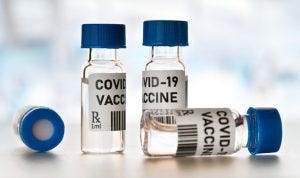
Protein A-derived affinity ligands against the COVID-19 spike protein coupled to chromatography beads can resolve purification challenges in the development of coronavirus vaccines, say Navigo and Repligen.
Bringing a vaccine against COVID-19 to market involves numerous challenges, not least on the manufacturing side. In downstream processing (DSP), the speed of purification and the yield of the purified product are key to ensuring supply of a quality vaccine.
As such, bioprocess technology firm Repligen teamed with protein engineering firm Navigo Proteins GmbH to develop an affinity ligand specifically for COVID-19 vaccines.

Image: iStock/Lubo Ivanko
“Navigo Proteins developed a Protein A-derived affinity ligand from its Precision Capturing platform for the spike protein and together with Repligen, coupled it to chromatography beads, to generate a spike protein-specific affinity chromatography resin,” Oliver Schub, director Business Development at Navigo, told Bioprocess Insider.
“Given the many different COVID-19 vaccines in development, a robust, rapid and cost-efficient platform DSP for many of them would be a possible solution to the expected manufacturing challenge for the billions of doses needed world-wide.”
COVID downstream challenges
According to Schub, expression of vaccines is often much lower than the several grams per liter seen with antibodies.
“With low concentrations and – in certain cases – with high background of host cell proteins, these recombinant protein vaccines are very difficult to purify. Classical DSP steps typically consist of several different, sequential chromatography steps. On top of that, manufacturers may need to handle large volumes of liquid in their DSP while sequentially applying the different DSP steps. Moreover, every protein vaccine will need its own, newly developed-from-scratch DSP.”
Generally, affinity chromatography is particularly well suited to solve such DSP challenges, he told us, “since affinity chromatography isolates its target protein vaccine efficiently from dilute and complex liquid mixtures (the respective expression feeds), regardless of the expression system.
“It does so very robustly, independent of the chemical composition of the expression system, concentrating the huge initial expression feed volume to a much smaller, more easy-to-handle volume.”
Vaccine types
mRNA-based vaccines, such as those in development by Curevac, BioNtech, and Moderna, will not benefit from custom affinity chromatography resin, as they need the spike protein to be physically part of the vaccine and in mRNA vaccines the spike is only encoded. However, the recombinant COVID-19 vaccines in development could all benefit, whichever expression systems – CHO, microbial, fungal, insect, plant, etc. – they use, said Repligen spokeswoman Sondra Newman.
“The primary benefit of an affinity resin for COVID-19 vaccines is speed (decreased processing time with fewer column steps) and potentially, improved yield. Evaluation is ongoing, and we will learn more by end of year on resin performance,” she told us.
“Companies are not using affinity chromatography to purify COVID vaccines based on spike protein today. It’s more a traditional approach using Ion exchange chromatography and pseudo affinity resins like lectins. Because there is no true affinity step it typically takes more purification column steps which can result in yield losses.”
Navigo and Repligen’s program has entered its second stage, focusing on both scaling up the manufacturing of this ligand and on the development and validation of the related affinity chromatography resin.
While a number of vaccine developers are testing the pilot resin on their DSP departments, Newman said it is too early to predict volume required or potential revenue.
“Most likely these resins would be used in next-gen versions of applicable vaccines, when developers will aim to optimize their manufacturing processes – we therefore expect revenue impact in 2021 to be modest.”
About the Author
You May Also Like

schedl_b_and_w.jpg?width=100&auto=webp&quality=80&disable=upscale)
schedl_b_and_w.jpg?width=400&auto=webp&quality=80&disable=upscale)


